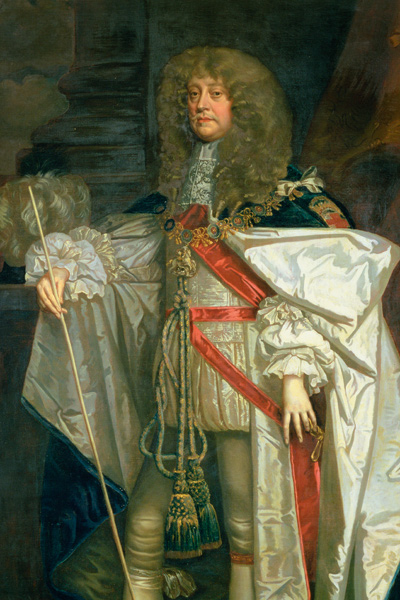Historians have long been more interested in the Roundheads than in the Cavaliers. It was the parliamentarians who achieved England’s revolution, or the nearest thing the country has come to one. It was they who overthrew the monarchy, the House of Lords and the bishops, they whose insistence on parliamentary rights, and whose attainment of a measure of religious toleration under Cromwell, apparently pointed ahead to modern values.
Now the balance is changing. Historians have become less ardent for progress. Under their increasingly sceptical gaze the gap between parliamentarian thinking and the outlook of its later congratulators seems ever wider. Besides, over-population has driven students of the parliamentarian cause into neighbouring pastures.
The trouble is that the royalists prove harder to study. They either wrote fewer documents or, fearing prosecution, destroyed records in defeat. The parliamentarians, having driven the king from London, expanded the bureaucracy of Whitehall and voluminously registered its measures. Royalism does have its documentary riches, but distorting ones.
The History of the Rebellion by Charles II’s leading counsellor Edward Hyde, Earl of Clarendon, has been the most influential work of contemporary history in the language. A mass of correspondence among Hyde’s circle in the years of royalist exile survives. Far less well documented is the rival party, which centred on Henrietta Maria, queen to the first Charles and mother of the second, whose most intimate and long-serving adviser, Henry Jermyn, is Anthony Adolph’s subject.
The conflict raised the most basic questions about the future of the monarchy, if it were to have one. After the regicide it was Hyde’s conviction, which events would vindicate against every appearance of probability, that the nation would come to its senses and restore the Crown unconditionally, provided the exiled court played to the monarchy’s strengths: its foundation in law; its partnership with Anglicanism; its Englishness. The queen mother’s party asked how an utterly defeated regime could hope to return to power without compromises with the victors. It sought support wherever it could find it, from foreign rulers, from Scotsmen and Irishmen, from Catholics and Presbyterians.
The compromises would be merely tactical, for around Henrietta Maria there were those who wanted absolutism at the point of the sword. Why, they asked, should the Crown be restrained by parliament, that impertinent trade union of the constituencies which demanded expensive policies but refused to pay for them? Why should it not emulate the great monarchy of Henrietta Maria’s native France, which had suppressed representative institutions and was imposing its will by means of a standing army and innovative administrative methods?
After the Restoration, the same party and its successors would strive to free the Crown from parliament through French subsidies and an alliance of the two countries with the anti-republican faction in the Netherlands. In the retrospect created by the Revolution of 1688 those goals look reactionary. In their own time they had an avant-garde streak.
Did Jermyn shape such thinking, or merely follow it? The younger son of a Suffolk squire, he grew rich and fat through court employment. Whether or not he was Charles II’s father, as some believed, his life turned on his closeness to Henrietta Maria and on the grasp of French politics and culture it helped bring him. He failed in almost everything, from the calamitously counterproductive attempt at a military coup against parliament in 1641 to his machinations against Hyde.
Failure can arise from circumstance or misfortune rather than ineptitude, but if there was a serious political vision amid Jermyn’s pleasure-seeking and careerism Adolph does not substantiate it. Jermyn’s kings had only occasional use for him. Charles I allowed him no political office and no place on the royal council. After Hyde’s fall in 1667 Jermyn was not among the group of statesmen who replaced him.
Adolph, having written a measured account of Jermyn for the Oxford Dictionary of National Biography, here talks himself into a succession of implausible claims. Jermyn was ‘effectively in charge’ of royal policy in 1641; he made a ‘pivotal’ and ‘amazing’ contribution to the Restoration; ‘it was he, more than anyone else’ who made the restored king financially and politically secure; and so on.
On distant terms with the political and religious life of the period, Adolph does have a visual feel for the age and a rare gift for conveying it, virtues which prosper in his depiction of his hero’s imaginative sponsorship of the building of Jermyn Street and St James’s Square on scruffy London fields. Alas, he has a half-acknowledged taste for fictional embroidery. His scarce endnotes, for which the reader almost needs a microscope, rarely allow us to know what he is reporting from the evidence and what he has added to it.






Comments